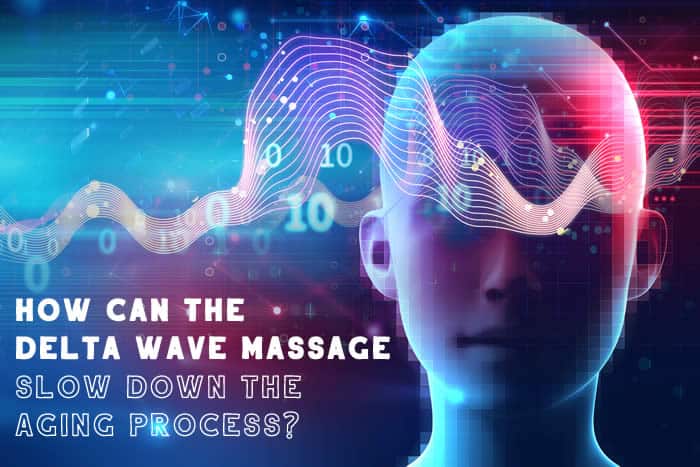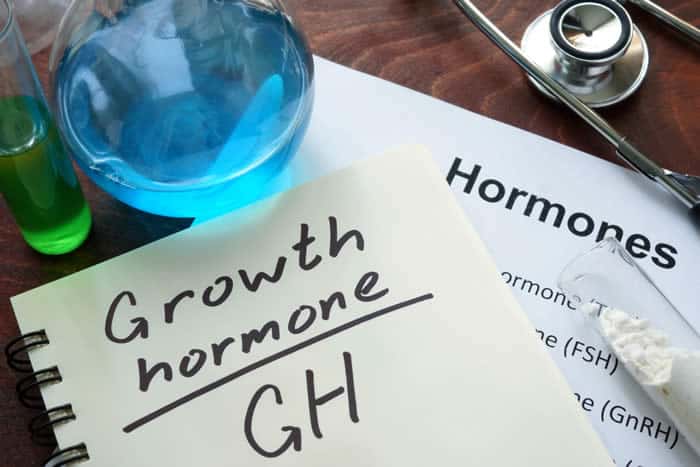

Why do we age? Why can’t our cells just keep replicating themselves forever so that – barring a mortal injury or disease – we stay young forever? Why do we become more susceptible to diseases of the body, emotion, and mind the older we get?
There are over 300 theories on aging that present multiple agents as being the primary culprit to the aging process.
- Some blame the accumulative effect of mutations with each cell division.
- Some say our diet is the primary factor in cell degradation and the disease susceptibility of the elderly.
- Others point towards the environmental factors of pollution and UV exposure.
And clearly all of these elements contribute in one way or another.
Somatopause or Hyposomatotropism of Aging
But in my mind, there is one statistic – that when explored – satisfies all the attributes of the aging process so completely, it becomes the obvious driving force behind the decrease in our ability to adequately replicate and repair our cells, and why we become vulnerable to illness and disease as we age. That statistic being that GH secretion declines by 50% every 7 years after the age of 18-25 years. This decline in the secretory activity of the GH–IGF-1 axis has been termed somatopause or hyposomatotropism of aging.
Growth Hormone (GH)
The endocrine system regulates the growth of:
- the human body
- protein synthesis
- and cellular replication.
A major hormone involved in this process is growth hormone (GH), also called somatotropin—a protein hormone produced and secreted by the anterior pituitary gland.

However, shortly after reaching our “adulthood” – our production of growth hormone dramatically decreases and continues its downward spiral until death. If the pituitary gland is capable of GH production throughout our entire life unless damaged – why the decrease? What happens between the ages of 18-25 that causes a 50% drop in our production of GH?
Looking closer at the production of growth hormone, we discover that up to 99% or our
production of growth hormone occurs during Delta Wave brain activity.
Delta State
For the most part, people only can reach this stage or brain activity during sleep – and only 15% of our sleep on average is spent in this Delta State. This stage of sleep is often referred to as “deep sleep.”
Research clearly shows that it is during the Delta State of brain activity that nearly every aspect of our body’s healing mechanisms increases their production and processes exponentially. In some cases (like the production of growth hormone), up to 99% of the production occurs during the Delta State.
If we get 8 hours of sleep, that means we spend, on average, just a little over one hour per day in Delta. However, a recent study by the Family Safety and Health organization done just before the COVID lockdown found that, in the U.S., adults average less than 6 hours of sleep per night – recording a steep downward trend in just the last 20 years. That means our time spent in Delta is now less than an hour.
This news would not be so terrifying if we had increased the percentage of Delta activity in that same time, because it is not the quantity of sleep that is most important, but the quality of sleep.
Unfortunately, the news gets worse.
Our Ability to Achieve the Delta State Is Decreasing
Our ability to achieve the Delta state is also decreasing (many blame the increase in smart phone use in the bed). So, Americans are now achieving significantly less production of cancer fighting proteins, immune system hormones and antigens, nervous system regeneration and rejuvenation, and even emotional healing – since Delta is when our minds script what psychologists call “dream therapy” that then occurs in REM.
No wonder health studies are showing an overall rise in physical, mental, and emotional
illnesses!
But what is perhaps the most telling factor to consider is that this lack of Delta brain wave activity is having a huge impact on our growth hormone production – which is the building block for all cell generation and wound recovery.
As we come to understand the implications of the loss of Delta in this light, more and more studies on aging attribute this factor as being a key component to growing old faster. Many argue that the #1 reason medical science has stopped advancing the life expectancy is this loss of quality sleep (Delta).
In fact – the CDC shows that since 2010, the life expectancy has been steadily declining in the U.S. It is telling that 2010 is the year when smartphone use first became common.
But aside from cell phone use – we must ask what occurs between the ages of 18-25 that causes us to lose not just hours of sleep – but deep sleep specifically?
The Effect of Changes in Stress Levels

Some point to the stress of becoming an adult, and taking on the adult responsibilities, that often takes place in most of the population during these years.
Things like:
- Providing for yourself without our parents buying and cooking our meals,
- doing our laundry,
- and waking us for school/work anymore.
This added stress can raise cortisol levels which clearly has been shown to affect our ability to reach deep sleep. But childhood and teenage years can be the most stressful in a person’s lives too – largely because we are encountering physical and emotional issues for the first time and must struggle to learn how to deal with life’s problems without prior experience or the toughening of our heartstring tissue.
So, these types of stress level changes cannot be the main factor. We need to look at what is required for us to reach deep sleep to find this answer, because it does not matter so much that we are losing sleep – but that we are losing Delta sleep. THAT is a matter of huge importance.
Reaching the Delta Stage of Brain Activity
To reach the Delta Stage of brain activity, all research points towards the need to shut off our awareness of our surroundings. When in light sleep, we still have a connection with our surroundings so that if someone sits on the bed, or we hear a noise in the kitchen, our defensive reflexes engage, and we wake up.
Once we do and can ALLOW our brain to slow down to the delta state, that connection to our surroundings is then turned off. Our defensive reflexes are deactivated. Which is why, once we crossover from light sleep into deep sleep, it becomes very hard to wake up.
Bed movement will no longer cause us to waken because our defensive reflex is not receiving a signal from our surroundings. We must instead be shaken awake. And if we are forced to wake from the Delta State, our connection to our surroundings must be re-established. Our nervous system has to reboot. And, until it does – someone who has been awakened from the deep sleep often has no idea where they are or what time it is or even how to put on a pair of pants.
Awareness of Our Surroundings
Now, the question can be fine-tuned, and we must ask – once we hit the age between 18-25, what is keeping us aware of our surroundings and/or is keeping us from letting go of our need to be aware of our surroundings? Why suddenly can’t we allow our defensive reflex to be deactivated when we reach this age?
For most of us, in leaving home, we lose the security of being provided for, the nurturing comfort of knowing someone has our back and is just down the hallway.
I Can Remember…
I can remember the first time I moved to New York City – I could not fall asleep for days from the need to be aware of my surroundings. From the fear of completely letting go of my defenses.
Add to this the fact that many people become parents in this time period. Now it is not just ourselves that we need to provide for and protect. Even though I am hard of hearing, I was always able to hear the sound of my children’s cries. Why? Because I never slept? No – because I almost never reached Delta sleep. I was always hyper aware of my surroundings even in light sleep. My defensive system was attuned to the frequency of their cries – and my subconscious never allowed it to be shut off.
I lived the life of a touring Broadway actor straight out of college – and though I had left my parent’s cocoon, and had to struggle at times between jobs, I only had me to worry about during the hard times. Once I got over my fear of my strange surroundings – I was fine – and if I found myself in trouble, I had the comfort and the security of knowing I could run home to my parents in the back of my mind. And while on tour – I did not need to worry about booking my travel, checking my bags, creating my schedule, making my bed, cooking my food – it was all done for me!
The result – I did not age. I was still being cast as a college age ingénue into my late
thirties.
But then – Peter Pan grew up.
The Aging Process
It was not until I got married and had my first child that I had my first gray hair, and the aging process began.

Suddenly, I had others to worry about 24/7. I had responsibilities looming over my psyche that I could not just hand over to my parents. My need to provide and defend went up-up-up, and my deep sleep periods went down-down-down.
And all the effects of less Delta impacted me physically, mentally, and emotionally. My growth hormone production plummeted – as did the production of all the other healing agents we naturally produce during Delta.
So my
- immune system suffered,
- memory became worse, and
- temper shortened.
I AGED.
Bringing More Delta Activity Into People’s Lives
The importance of finding a way to bring more Delta activity into people’s lives is monumental, especially in today’s world of coronaviruses, instant and 24/7 subjection to social media persecution, a scary big brother watching us with GPS accuracy, differing opinion intolerance and cancellation, and other stresses that have never before been suffered by a population that causes every society to look over their shoulder more and more. To be more defensive. TO FEAR.
But how do we bring more Delta into people’s lives?
- Drugs? It is true that some drugs can bring the Delta State of brain activity – but these drugs run the risk of fatal overdose and addiction – and have other dangerous side effects as well.
- Hypnotism? This has been shown to help achieve this Delta State but can interrupt circadian rhythms and can be counterproductive in the long run.
Massage’s Connection to Better Sleep
It is a well-known fact that relaxing massage can help people fall asleep faster and sleep longer and deeper. But unless the technique being used is applied with the intent to disengage a person’s awareness of their surroundings and deactivate the person’s defensive system, the profound potential for massage to bring the person into the Delta State will not be achieved either on the massage table or later that night when they are asleep. In fact – most techniques that are being taught and practiced are causing the opposite effect – heightening a person’s defensive system, cortisol levels, and emotional angst.
Delta Wave Massage
That is what makes the Delta Wave Massage vitally important. Its philosophy and technique focus on releasing subconscious tension in the client while eliminating the conveyance of the subconscious tension held by the therapist into the client through the language of touch.
It builds trust and an anticipation of relief (which disarms the defensive reflex) versus causing fear and an anticipation of pain (which activates the defensive reflex).
Because every aspect of the Delta Massage is geared towards helping the client experience Delta brain activity on the table and then again more deeply that evening, you can have a powerfully positive impact on all aspects of the client’s aging process.
In fact, the healing benefits of Delta brain activity are so profound that reaching this state should be the goal of every massage – especially if there is a technique such as the Delta Wave Massage that allows you to incorporate deep work and ROM without triggering the client’s defenses.
The health threat to a society that is yearly seeing the amount of time spent in Delta decrease cannot be stressed enough. Put it this way: once that ever-shrinking average of minutes per day that we reach Delta hits zero – we die.












